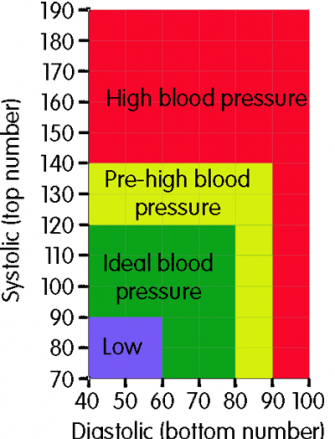Around 30% of the UK population have high blood pressure, many may not know they have it as often it presents with no symptoms. When your blood pressure is too high, your heart works harder to pump blood around your body.
High blood pressure also places a strain on the walls of your arteries, making a blockage more likely. If left untreated, it increases your risk of serious health problems such as stroke, kidney disease and heart attack.
The only way of knowing is you have high blood pressure is by having it tested.
What blood pressure reading should you expect?
- A blood pressure reading below 120/80mmHg is considered to be normal.
- If readings are consistently 140/90mmHg or higher you are considered to have high blood pressure (hypertension).
How often should blood pressure be taken?

- Adults should have a blood pressure check at least every five years.
- If you have high blood pressure and are trying to reduce it you should have it re-check every few weeks.
- Once under control you should have blood pressure checked once every 6 months to a year.
What increases your risk of high blood pressure?
- being overweight
- having a family history of high blood pressure
- smoking
- if you are of African or Caribbean descent
- eating too much salt
- not eating enough fruit and vegetables
- not doing enough exercise
- drinking too much coffee (or other caffeine-based drinks)
- drinking too much alcohol
- being stressed
- people aged over 65
Further information and useful resources:
- Your blood pressure – Blood Pressure UK charity
- High blood pressure (hypertension) – NHS website
- What young adults need to know about high blood pressure – London Doctors Clinic








